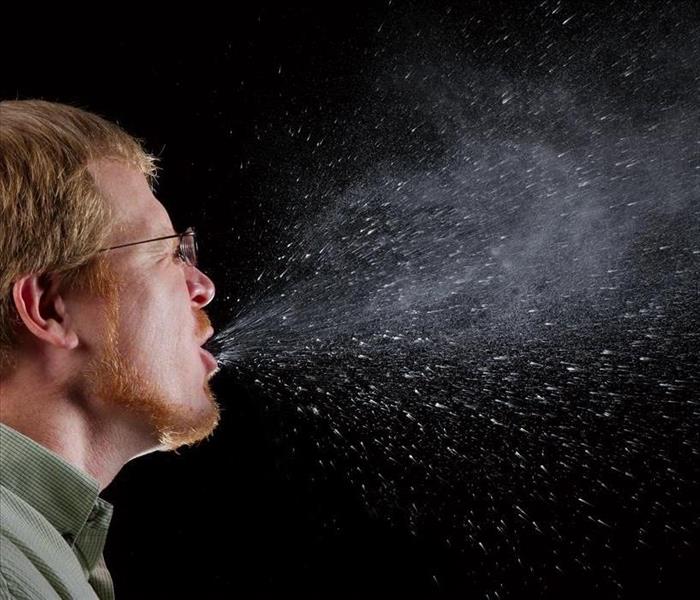Preventing the spread of the common cold and the flu at home and in the workplace
4/17/2020 (Permalink)
SERVPRO of Columbia and Suwannee counties has been deeply entrenched with assisting local businesses with Covid-19 cleanup or pre-cleaning.
Here are some tips on how to keep from spreading a cold or flu if you have it.
-Cover coughs and Sneezes
Flu germs are believed to spread through droplets from the mouth and nose. Use a tissue to cover your mouth and nose when you cough or sneeze. Make sure to throw the tissue away immediately and wash your hands straight away. If there’s no tissue handy, cough or sneeze into the crook of your elbow.
-Avoid touching your eyes and face
According to the CDC, flu germs can live for two to eight hours on hard surfaces. That’s why it’s so easy to pick up flu germs without knowing it. You can get infected if you touch an infected doorknob or light switch and then rub your eyes or bite your nails. Learning to keep your hands away from your face can be tough, especially for children. Remind them often, as well as yourself.
-Wash your hands often
All hand washing is not equal. For it to be effective, make sure you and your family follow these steps:
- Run warm water over your hands.
- Add soap.
- Scrub for at least 20 seconds.
- Rinse and dry.
You can stock up on alcohol-based hand sanitizers for areas where sinks aren’t available or when you’re out and about. Store them out of the reach of young children and ensure children have adult supervision when using them. Make sure your hand sanitizers are at least 60 percent alcohol, and remember that they’re not a replacement for washing your hands with soap and warm water — they don’t tackle all germs, and don’t work on visibly dirty hands.
You’ll need to remind kids to wash up:
- each time they use the bathroom
- before they eat
- after they come home from school or a play date
-Limit contact with family members or co-workers who are ill
If someone in your family does get the flu, take these steps to prevent the flu from spreading:
- Keep the sick person at home.
- Limit close contact between the sick person and other family members as much as you can while they’re contagious. In general, this is up to a week after they show symptoms.
- Change sleeping arrangements, if possible.
You should also avoid sharing the following items from the sick person:
- washcloths
- towels
- dishes
- toys
- utensils
-Clean your home and office area
Flu germs and viruses love to lurk on items you touch every day. Here are some hot spots for germs:
- kitchen sponges
- dishcloths
- cutting boards
- home desks
- floors
- sinks
- toilets
Clean and disinfect these hot spots regularly. You can microwave your kitchen sponge for one minute on a high setting to zap germs. Better yet, throw it out.
If someone in your household has the flu, take special care when washing their things. Wash dishes and silverware thoroughly by hand or in the dishwasher. You don’t have to do a sick person’s laundry separately, but try to avoid scooping up an armload of items and holding them close before washing them. Use laundry soap and dry on a hot setting. Always wash your hands immediately after handling dirty laundry.




 24/7 Emergency Service
24/7 Emergency Service
